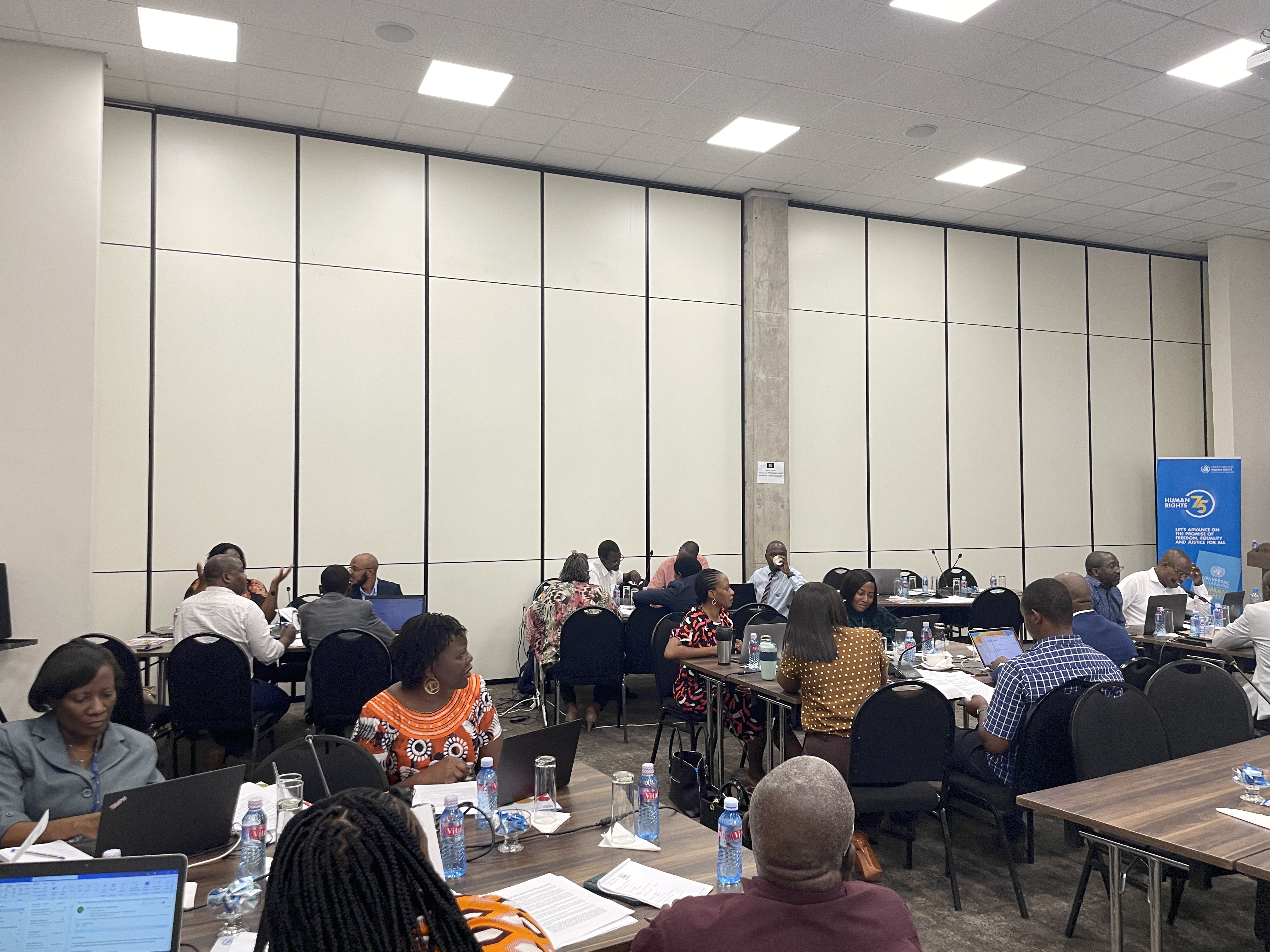
On October 9 and 10, CESR participated in a workshop on advancing the rights to food and education in Lusaka, Zambia. Organized by the United Nations Country Team in Zambia, the workshop brought together close to 50 economists, development specialists, and human rights experts, representing the government, international agencies, and civil society. The goal of the workshop was to discuss how to take forward the findings of a study on these rights, supported by the Seeding Change project of the Office of the High Commissioner for Human Rights (OHCHR).
The Seeding Change project aims to generate in-depth analysis to feed into socio-economic planning at the national level. This includes national development plans, national budgets, and other key development processes, as well as joint UN programming processes. Specifically, such analysis aims to translate the recommendations of human rights mechanisms, such as UN treaty bodies, on economic, social, and cultural rights into country-specific policy advice. In the case of Zambia, the analysis focused on the degree to which the government had incorporated relevant human rights standards and principles in its legal, policy, and administrative systems governing the food and education sectors.
The first day of the consultation shared the study’s findings, as well as a number of other initiatives aimed at securing greater realization of the rights to food and education. UNICEF’s 2023 budget brief on nutrition, for example, highlighted that while Zambia has a strong policy framework for nutrition, the country continues to record poor nutritional outcomes. This points to inadequate interventions (especially nutrition-specific interventions) and indicates the need to move it up as an investment priority. In particular, the allocation to identifiable nutrition programs in 2023 decreased. This is not in line with global commitments to increase financial contributions by at least 20% annually. In a context where over 1.35 million Zambians are experiencing extreme food insecurity, we can conclude that Zambia is failing to meet its obligation to avoid retrogressive measures and to meet its minimum core obligations to guarantee the right to food.
A key topic of discussion was Zambia’s debt restructuring efforts — and the opportunities and challenges it presents to advance economic, social, and cultural rights. On the one hand, the restructuring has “freed up” USD 5.8 billion in resources, which can be invested in rights. On the other hand, the conditions accompanying it may amount to austerity that falls foul of the government’s obligation not to take any measures that would be “retrogressive” for human rights.
On the second day, Allison Corkery, CESR’s Director of Strategy and Learning, led a series of skills-sharing sessions on human rights budgeting. Drawing on Decoding Injustice — an innovative approach to collecting, analyzing, and presenting data — these sessions reflected on the mindsets, toolsets, and skillsets needed to scrutinize government budgets through a human rights lens.
The session on mindsets encouraged participants to question the assumptions about budgets that lead to fiscal conservatism and, instead, to see the critical role budgets play in advancing rights. It also outlined the human rights standards that should inform budget decisions and shape the budgetary process, in all its phases.
The session on tools emphasized that rights-based budget analysis means contextualizing the figures in the budget, by looking at the broader policy frameworks that they’re embedded in. Allison shared ‘OPERA’, an analytical framework for doing this, which groups governments’ human rights obligations around four dimensions: outcomes, policy efforts, resources, and assessment. When combined, these four dimensions can help show the links between evidence about a State’s conduct – i.e., what it is or isn’t doing – and evidence about the outcomes that result from that conduct – i.e., what this means for people’s lives.
The session on skills introduced participants to some basic data analysis techniques. In the words of prominent economist Ha-Joon Chang, “Economics is too important to be left to economists”. The ability to do some basic “number crunching” (such as calculating percentages, dividing per capita, and converting nominal figures to real, to account for inflation) makes budget analysis more accessible to a wider range of stakeholders. This is really critical for advancing human rights budgeting.
Reflecting on the workshop, Allison noted that “the wealth of expertise in the room was really striking”. It was clear that a lot of in-depth work was being done by different actors, in quite specific areas. To build momentum around the recommendations from the Seeding Change study, it will be key to find ways “to connect the dots between this work, in order to grapple with the underlying factors constraining Zambia’s ability to guarantee economic, social and cultural rights – including the right to food and the right to education”.